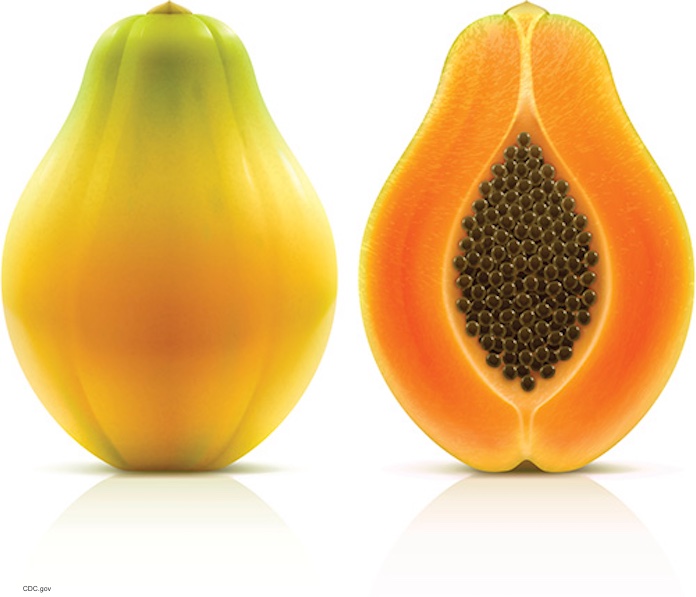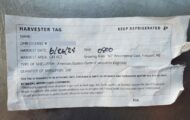The Salmonella outbreak linked to recalled imported Maradol papayas was the second largest food poisoning outbreak of 2017. At least 251 people across the country were sickened with nine different strains of Salmonella bacteria; that made this outbreak unique.

The case count by strain was: Salmonella Thompson (144), Kiambu (54), Anatum (20), Agona (12), Gaminara (7), Urbana (7), Newport & Infantis (4), and Senftenberg (3). Seventy-nine of these patients were hospitalized, and two deaths were reported; one from California and one in New York City. People of Hispanic origin were disproportionately affected by this outbreak.
This outbreak began on March 17, 2017, and ran through October 2017 and was comprised of four separate outbreaks. Four brands of Maradol papayas were recalled, imported from four farms in Mexico. In addition, papayas from three other Mexican farms tested positive for Salmonella strains that match illnesses not counted in this particular outbreak.
The recalled brands of papayas were Caribeña brand, Cavi brand, Valery brand, and Frutas Selectas. These papayas were all sold in the United States from December 2016 until July and August 2017. Illness onset dates ranged from December 20, 2016 to August 16, 2017.
The number of people sickened varied between the case counts from the FDA and CDC; no government official has explained this discrepancy. The CDC case count by state was: California (2), Connecticut (6), Delaware (4), Florida (1), Georgia (1), Iowa (2), Illinois (6), Kentucky (4), Maryland (11), Massachusetts (11), Michigan (1), Minnesota (4), North Carolina (7), New Jersey (41), New York (71), Ohio (2), Oklahoma (7), Pennsylvania (8), South Carolina (1), Tennessee (2), Texas (9), Virginia (18), and Wisconsin (1).
Isolates taken from patients were closely related genetically, which means they shared a common source of the bacteria. The Maryland Department of Health found two outbreak strains of Salmonella bacteria on papayas from a grocery store where ill persons bought the fruit. FDA also tested papayas imported from Mexico and found other Salmonella outbreak strains.
PFGE and WGS results of Salmonella isolates from papayas were compared to isolates from ill people in the PulseNet database, and the bacteria had the same DNA fingerprint. That was more evidence that people in this outbreak were sickened from eating contaminated Maradol papayas.
If you ate papayas imported from Mexico in the last year and experienced the symptoms of Salmonella food poisoning, which include nausea, diarrhea that may be bloody, vomiting, and a fever, see your doctor. The long term consequences of a Salmonella infection can be serious, and may include reactive arthritis, irritable bowel syndrome, and high blood pressure.




